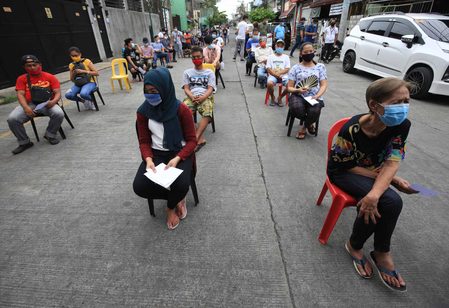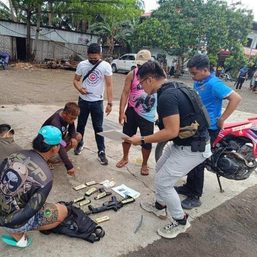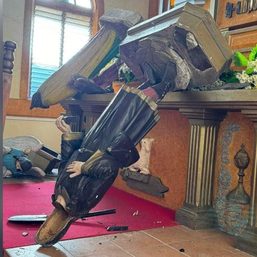SUMMARY
This is AI generated summarization, which may have errors. For context, always refer to the full article.
The Philippine National Police (PNP) will be used to augment the government’s pool of contact tracers, Presidential Spokesman Harry Roque said a day after the country’s COVID-19 cases rose by a new record-high of over 6,000 cases.
“The PNP leadership has signified their conforme to this and they’re in the process of training the police officers that will act as contact tracers,” Roque said in an interview with CNN Philippines’ Pinky Webb on Wednesday, August 5.
Tapping police was part of the contact tracing model used by Baguio City Mayor Benjamin Magalong which experts and lawmakers have praised as a step above efforts of other local governments. Magalong has been designated “tracing czar” by President Rodrigo Duterte because of this.
Roque could not say how many police personnel will be detailed for contact tracing. In the Baguio City model, he said Magalong divided the city into “clusters” wherein the police personnel assigned to those areas would perform contact tracing. If confirmed or suspected cases mentioned contacts who belong to other clusters, the police would simply inform their counterparts from those clusters.
Dire need
The need to boost the country’s contact tracing is dire. Magalong previously raised the alarm that only 4 out of 600 local governments had sufficient contact tracing capability. Only an average of 8 close contacts of a confirmed case are reached by authorities when the target should be to reach 30 to 37 contacts and administer reverse-transcription polymerase chain reaction (RT-PCR) tests to them.
Roque, who is also spokesman of the government’s coronavirus task force, said getting the police onboard would also be a cost-saving measure as this would just be another task they would do in their work as law enforcers.
“While LGUs can hire and pay for additional [contact tracers], 150,000 of them, the police, because they are already employed by the government can be tapped to do the same chore without additional remuneration,” said Roque.
The Department of Health said the government now has some 77,000 contact tracers – a mix of people hired by both national and local governments.
Based on the 1:800 ratio recommended by the World Health Organization, the Philippines needs a total of 135,000 contact tracers, which means it has a current shortfall of 58,000.
Recommended by experts
Back in May, experts from the University of the Philippines (UP) had already urged the government to use police for contact tracing.
“We need a people’s army of contact tracers. A possible first step is to re-task the PNP from primarily manning checkpoints and/or arresting quarantine violators to take the lead in contract tracing teams,” the experts said in their Forecast Report No 7, dated May 20.
They likened contact tracing to “detective work,” which police are supposed to be skilled at.
The UP experts also recommended that police work with students from medical, nursing, and other related health professions. Contact tracing teams should be a composite of police and students, they said.
The police-student teams should be given adequate remuneration, health insurance, and protective equipment like medical grade face masks, face shields, and isolation gowns.
The experts also said they should be given digital devices with which to record and upload standardized contact tracing data.
To win the fight against COVID-19, “aggressive” contact tracing should be the “centerpiece” of the government’s strategy, said the experts. – Rappler.com
Add a comment
How does this make you feel?



![[Rappler Investigates] The guns of Apollo Quiboloy](https://www.rappler.com/tachyon/2024/04/quibs-guns-carousel.jpg?resize=257%2C257&crop=412px%2C0px%2C1280px%2C1280px)

There are no comments yet. Add your comment to start the conversation.